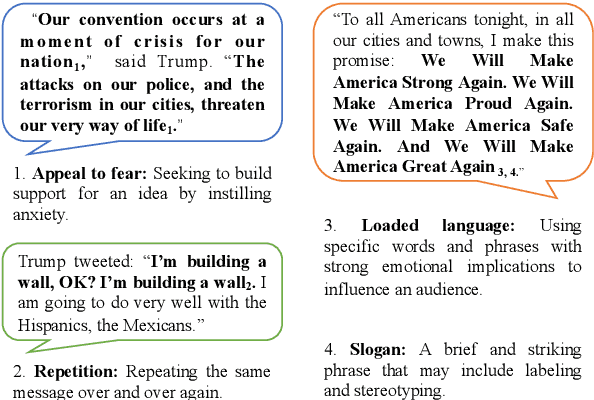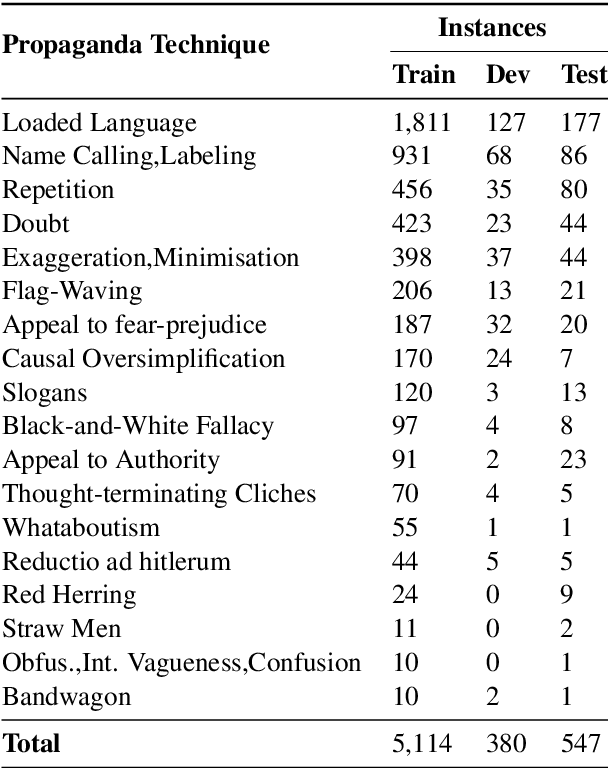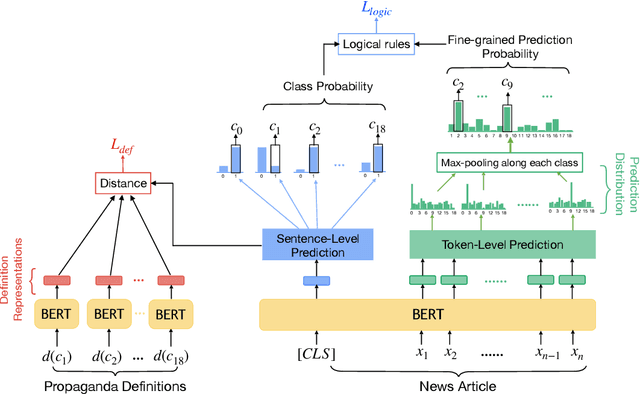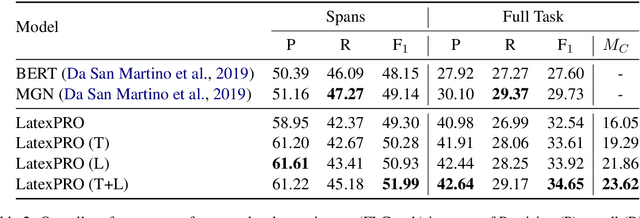Leveraging Declarative Knowledge in Text and First-Order Logic for Fine-Grained Propaganda Detection
Paper and Code
Apr 29, 2020



We study the detection of propagandistic text fragments in news articles. Instead of merely learning from input-output datapoints in training data, we introduce an approach to inject declarative knowledge of fine-grained propaganda techniques. We leverage declarative knowledge expressed in both natural language and first-order logic. The former refers to the literal definition of each propaganda technique, which is utilized to get class representations for regularizing the model parameters. The latter refers to logical consistency between coarse- and fine- grained predictions, which is used to regularize the training process with propositional Boolean expressions. We conduct experiments on Propaganda Techniques Corpus, a large manually annotated dataset for fine-grained propaganda detection. Experiments show that our method achieves superior performance, demonstrating that injecting declarative knowledge expressed in both natural language and first-order logic can help the model to make more accurate predictions.
 Add to Chrome
Add to Chrome Add to Firefox
Add to Firefox Add to Edge
Add to Edge